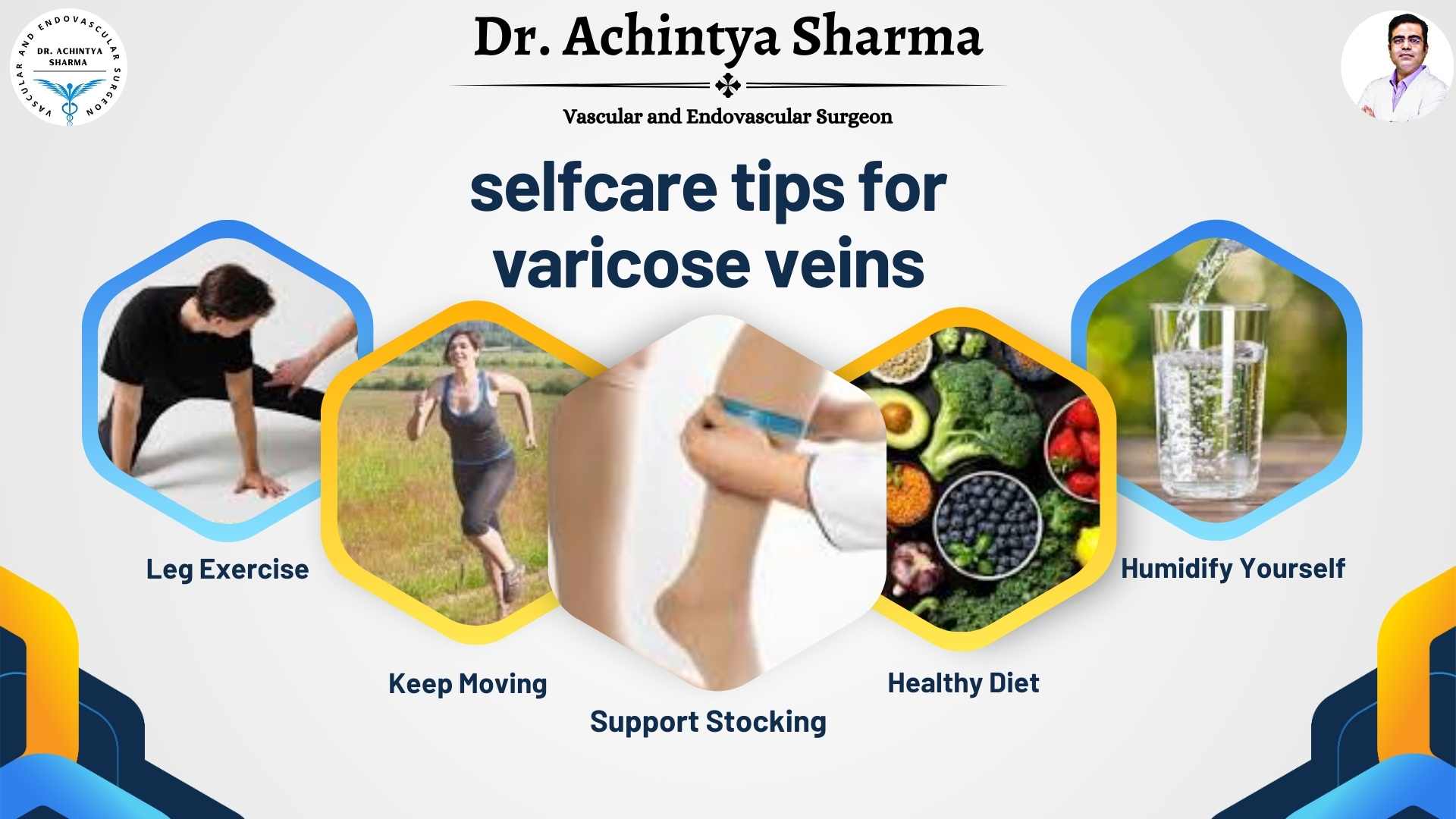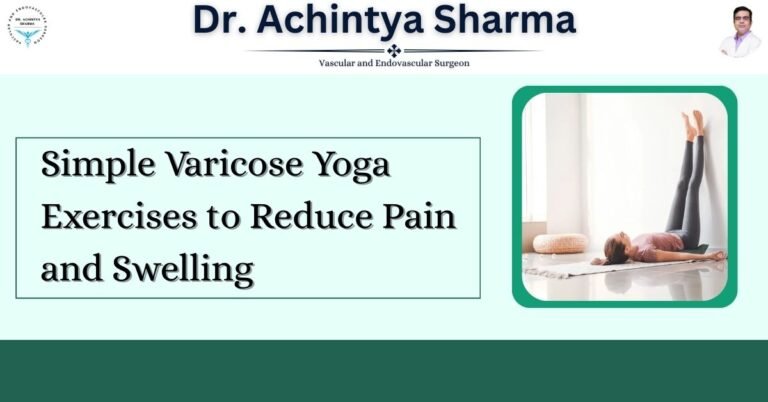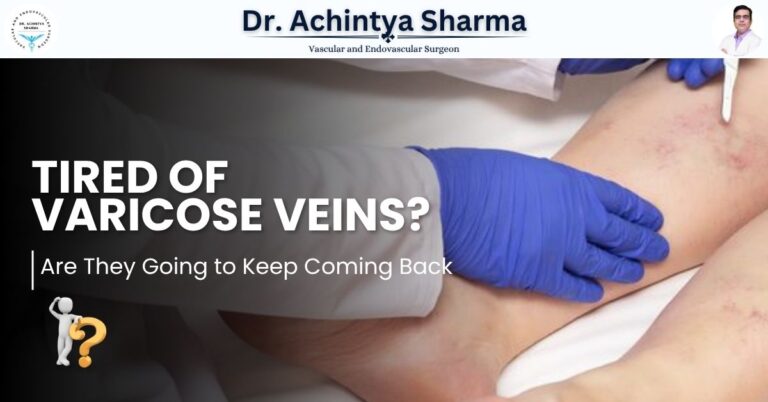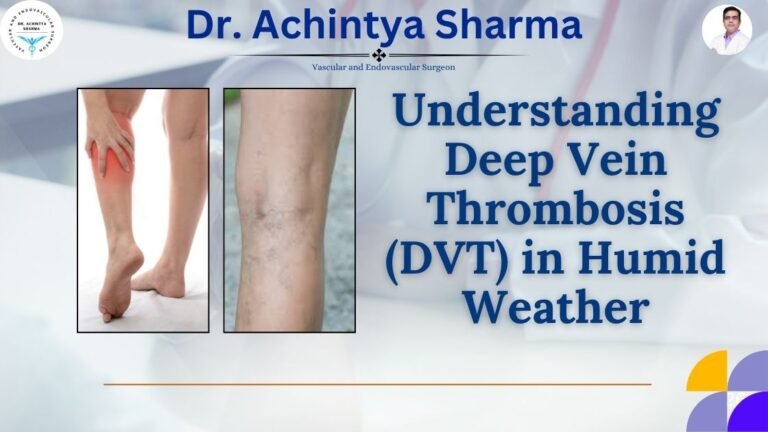Many people think varicose veins as a cosmetic issue . They may represent a health issue as well. These enlarged, twisted veins are common in the leg region and can cause pain, swelling and tiredness. Medical professionals treat varicose veins. The proper treatment and prevention this or that type of self-care can be useful. This section offers practical self-care tips for healthy veins and better lower limb health.
Understanding Varicose Veins
It is good idea to know what varicose veins are before exploring self-care tips. Varicose veins happen when vein valves fail, causing blood to stagnate and veins to swell. Other reasons can be hereditary, standing or sitting for long duration, obesity, pregnancy or aging. Common signs are pain, tenderness and sensation of fullness in the legs.
Effects of varicose veins on health
Varicose veins itself is a malfunction of veins. Blood clots located in deep veins can become movable. They can move in other areas of the body affecting major organs. Clots in the lungs, heart, and brain may cause heart attack, respiratory failure, stroke, and sudden death.Varicose vein harm quality of life (QOL) and physical function, resulting in reduced lower extremity strength and mobility. Impaired circulation leads to reduced muscle oxygenation, which contributes to these effects.
Home Remedies and Care for Varicose Veins:
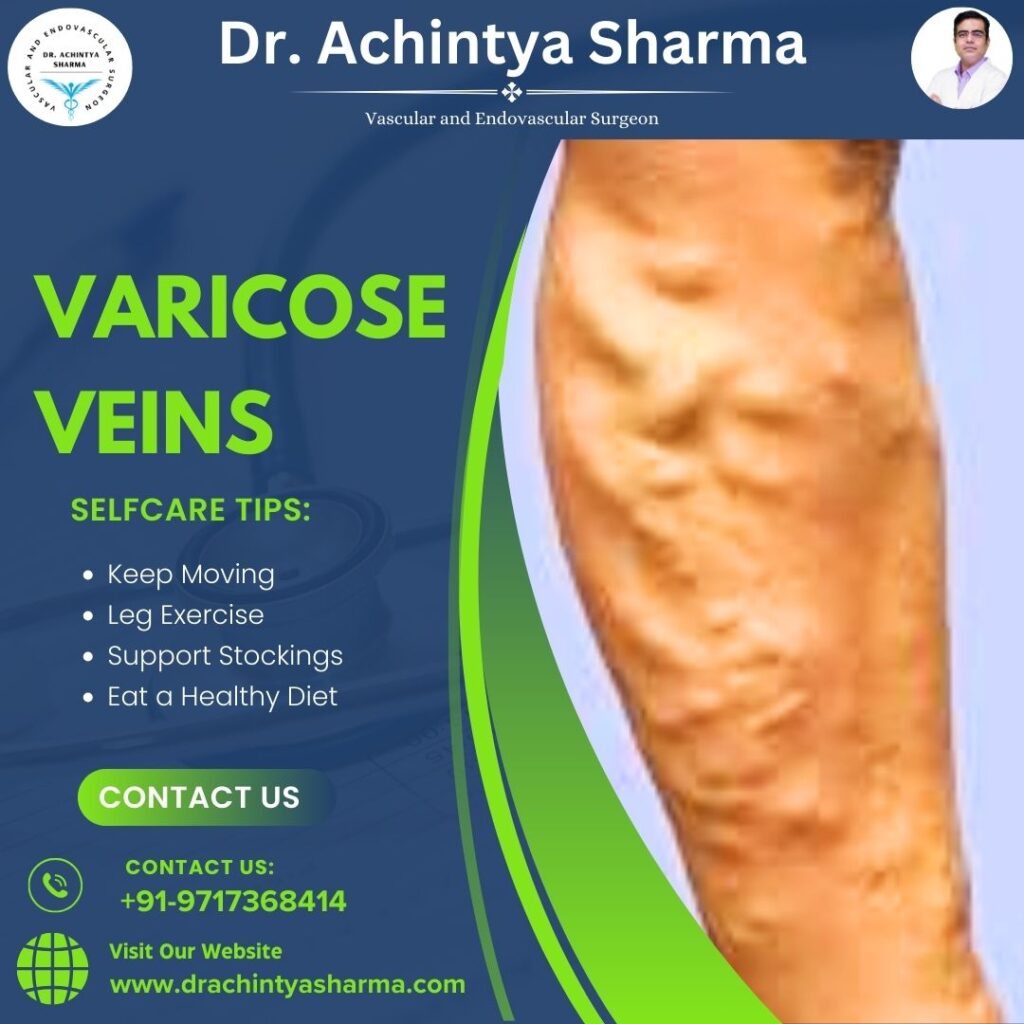
1. Keep yourself active
Walking, cycling and swimming are good for preventing varicose veins in pregnancy. Pregnant women have great chances to develop varicose veins. These exercises make the calf muscles essential for pumping the blood back to the heart. Exercise for 30 minutes ,5 times a week.
2. Maintain a Healthy Weight
If you are overweight your veins receive extra pressure which results in varicose veins. Eat a balanced diet rich in fiber and antioxidants, low in salt, to help with weight and vein health.
Ensure that your meals contain whole grains, fruits, vegetables and lean meat.
3. Legs Exercise
Swelling can be minimized by raising your legs above the heart level for about 15-20 minutes a few times within the day. This basic self-care recommendation for varicose veins restarts the bloodstream and lets blood return to the heart.
Raise your legs on a pillow while sleeping or relaxing.
4. Wear Compression Stockings
Compression stockings are specially designed to apply moderate pressure on your legs to aid the veins to pump the blood successfully. That’s why they’re useful for long sitting periods.
Talk to your doctor or nurse for proper fitting and to determine what level of compression it requires for you.
5. Practice Good Posture
Sitting with poor posture can harm your veins by hindering blood circulation. Avoid crossing your legs and keep your feet flat on the floor.
You can use Ergonomic chairs which are specially made to provide support to maintain a good posture.
6. Increase water intake
This condition impacts blood circulation and veins, and develops into various complications. Taking water ensures easy flow in and out of your peripheral systems.
Take a highlighted water bottle that will help you monitor water intake.
7. Think about Anti-Inflammatory Foods
There are particular kinds of foods that help in the reduction of inflammation and the proper functioning of the veins. These are salmon, avocado, green leafy vegetables, and berries into your diet.These simple foods could be good for varicose veins self-care.
Eat less processed food and sugar to prevent inflamation.
Lifestyle Changes for Long Term Gain
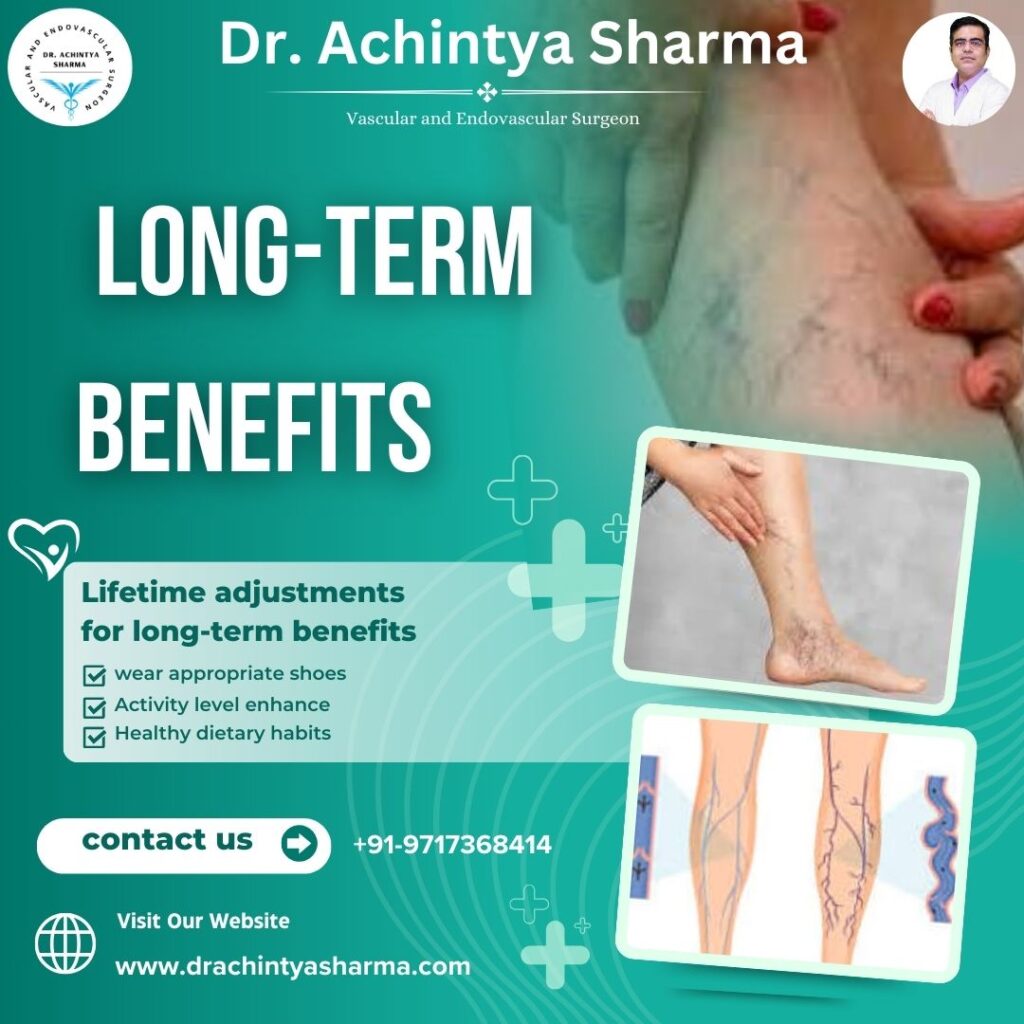
As the above hints pertain to relief and prevention mechanisms the long-term changes as well are very important. Stay active, eat balanced meals, and wear supportive shoes to protect your veins. Choose shoes with good arch support to reduce leg strain
Conditions That May require the Attention of a Medical Practitioner
In compliance with a good varicose veins self-care routine there are situations that would necessitate medical check up. If your symptoms worsen – pain, swelling, skin discoloration, or development of ulcers – see a doctor. Depending on the stage of development of this condition, surgery, sclerotherapy, laser therapy or vein stripping may be the advised course of action.
Conclusion
Managing varicose veins does not have to be complicated. These varicose veins self-care tips will ensure that you do not experience severe pain, more complications, and better health of your legs. Just think about how a few of those small changes we make gradually and steadily build up to tremendous results. Whether it is exercising, eating healthy food or raising your legs, anything that you do will contribute to better vein health.

